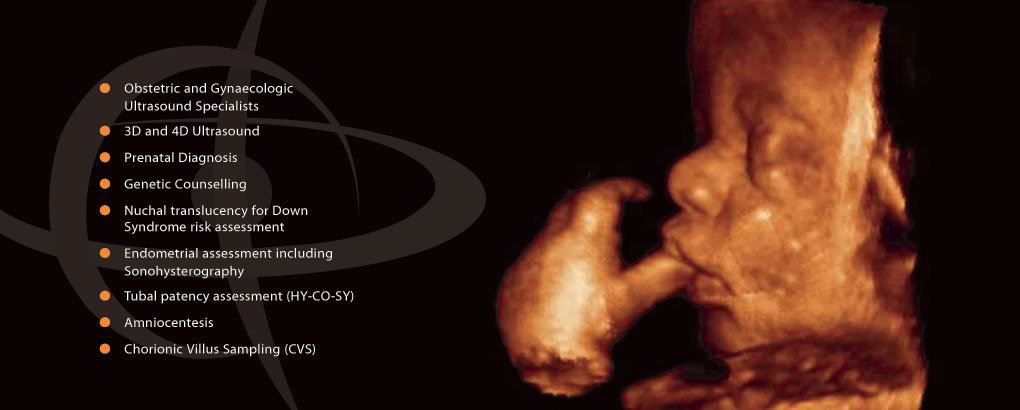Amniocentesis
>15 weeks
What is an Amniocentesis?
An amniocentesis is a prenatal diagnostic test in which a small volume of amniotic fluid (typically 12-15mls) is removed from the sac around the fetus to enable the testing of the fetal chromosomes, DNAor infection studies. The fetus sheds cells from the skin and urinary tract which then enter the amniotic sac and can be obtained from the amniotic fluid by amniocentesis. Amniocentesis, unlike CVS cannot be safely performed in the first trimester and is typically conducted at 15-16 weeks gestation.
Why would an amniocentesis be performed?
An amniocentesis is performed to assess the fetal chromosomes in pregnancies at risk for chromosome problems (eg. increased risk at the screening First Trimester Screen, previous affected pregnancies, parental chromosome problem).
In certain circumstances an amniocentesis may be indicated to assess a pregnancy at risk for congenital infection (eg. potential cytomegalovirus or toxoplasmosis infection).
Are there any risks to having an Amniocentesis?
An amniocentesis is an invasive diagnostic procedure and does carry with it a small but definite pregnancy loss rate (in the order of 0.5-1.0%). The presence of uterine fibroids (benign tumours of the uterine muscle) or prior vaginal bleeding may increase the pregnancy loss rate following an amniocentesis.
Fetal injury following an amniocentesis is rare. It is common to feel some uterine cramps or discomfort following an amniocentesis. Vaginal bleeding or fluid loss following an amniocentesis is uncommon and requires prompt medical attention.
We strongly suggest you have some-one attend your amniocentesis appointment with you and have them drive you home. It is not appropriate to have your children attend for an amniocentesis procedure and we would request you arrange childcare when scheduling for this procedure.





